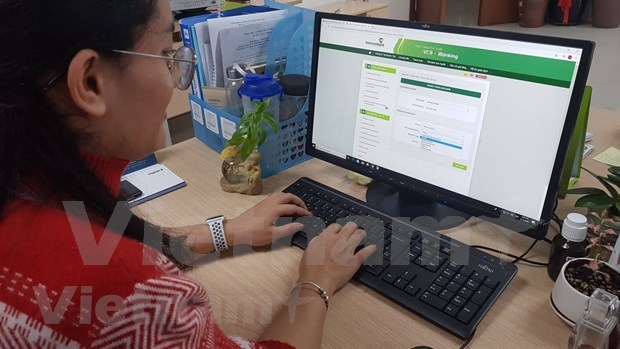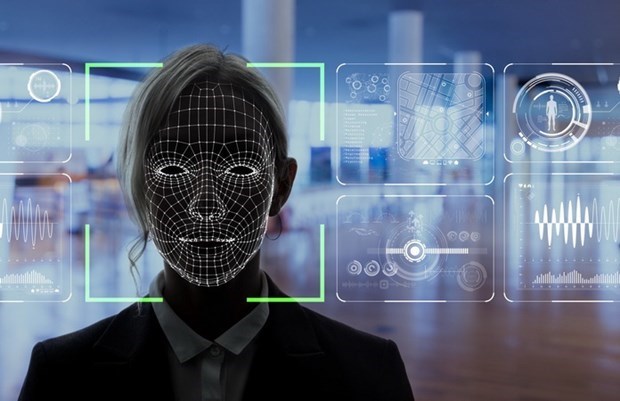Online payments: COVID-19 urges banks to change
 In the near future, customers can open bank accounts online (Photo: VietnamPlus)
In the near future, customers can open bank accounts online (Photo: VietnamPlus)
Hanoi (VNA) – Amidst the COVID-19 pandemic, many banks have undertaken measures to allow customers to open bank accounts online in the future.
The Fourth Industrial Revolution has brought about great changes, with commercial banks in Vietnam speeding up the application of technology to improve their services and promote cashless payments.
[Online payments: COVID-19 helps form online shopping habits]
The State Bank of Vietnam (SBV) has gathered ideas for a draft circular on amendments and supplementations to allow banks to apply an electronic Know-your-Client (eKYC) process to open payment accounts, instead of the traditional face-to-face process.
Opening bank accounts at home
SBV leaders said that opening payment accounts without directly meeting the customers will help banks to broaden their customer scale and customers’ access to banking services. Amidst the COVID-19 pandemic, the method can help bank users to make an online payment and avoid potential virus infections.
Tran Thu Huong, a local in Cau Giay district in Hanoi said that she needs many bank accounts to serve her online business. But, due to the COVID-19 pandemic, she has sought banks that allow her to open a bank account at home instead of going to the bank, she said.
“I hope that I can open bank accounts at home by processing authentication steps in smart devices such as smartphones,” said Huong.
Many people in remote areas also hoped to open their bank accounts online, being so far from the city centre.
The central bank has concentrated on increasing cashless payments with a focus on payments with smartphones. This is vital work for the banking sector. A recent survey showed that customers use online payment methods three times more than traditional payment methods.
To meet user demand, a number of banks have launched services to give more convenience to customers, including Live Bank and TPBank. Using Live Bank services, customers do not have to go to the bank and wait. Instead, they can use the bank’s ATM to process the procedure.
The VietCapital Bank recently introduced services to allow customers to open accounts online through the mobile app Capital Mobile Banking on smartphones.
A representative from the bank said that banks can use biometrics authentication or video calls to verify account users, and they can create a transaction limit to reduce risk.
The Orient Commercial Joint Stock Bank and Saigon Thuong Tin Commercial Joint Stock Bank have also prepared to launch similar services.
Leaders of the banks hoped that, due to regulations allowing customers to open banks accounts online, the number of accounts and transactions will surge.
 Face identification (Source: Getty Images)
Face identification (Source: Getty Images)
Security and safety
According to the latest information from the SBV, 63.7 percent of adults in Vietnam have a bank account, making a total of 88.5 million bank accounts in the country. However, a considerable number of people are yet to open a bank account.
Worrying about risks that may arise during the application of online authentication methods, experts held that banks should seek technology solutions to gather and verify the accuracy and validity of personal identification documents.
Tran Cong Quynh Lan, Deputy General Director of VietinBank, said that the bank has launched biometric authentication technology to read and verify the identity of customers through applications. Customers can, therefore, open their bank accounts by using their smartphones, he added.
Experts held that allowing customers to open bank accounts online can promote cashless payments. This is considered a “ticket” to digital banks. The method is suitable for busy customers, office staff and customers in rural areas with little availability to banks.
Leaders of the SBV affirmed that, in the future, more policies will be designed for disadvantaged groups who have not opened bank accounts, especially those in remote and rural areas. These policies will strengthen coordination among relevant agencies, as well as socio-political organisations with a ‘no one left behind’ policy, allowing disadvantaged groups to access financial service products, and make public service payments through bank transactions./.













